This box set from Arrow Video is now available for purchase.
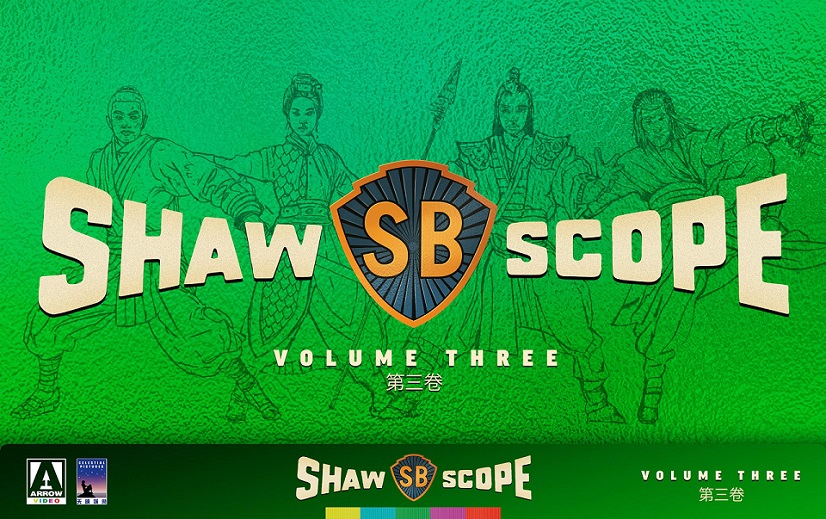
Sorry for the delay with this review release folks, but when Arrow Video put together a box set like this, it isn’t just thorough, it’s exhaustively so. And I mean that in the best possible way. The Shaw Brothers were legendary producers out of Hong Kong who are responsible for some of the greatest martial arts and genre titles ever made. Shawscope Volume Three is the latest Blu-ray set from Arrow Video chronicling a selection of 14 titles made by the company.
For many studios or production companies, a third edition would be full of lower-tier efforts, but that is not the case with this set. There are some classics here, as well as some very entertaining (if lesser known) pictures. As with all titles from the distributor, much care has been taken to present the movies with the best possible quality and once again, that is the case here. All were restored in 4K resolution with some additional grading to make them look as good as humanly possible. There’s a little bit of natural grain present, but these films look better than ever. So, let’s get right into it.
The One-Armed Swordsman (1967) is a classic about a poor man, Fang Gang (Jimmy Wang Yu), who has been trained in martial arts by a great master named Qi Ru Feng (Tien Feng). The other students don’t like Fang Gang because of his humble beginnings and Feng’s daughter (Angela Pan) actually ends up cutting off his arm when he shows no romantic interest in her. The protagonist is rescued by a peasant girl (Lisa Chiao Chiao), who ultimately inspires him to use a one-armed fighting technique. When old enemies arrive and threaten the lives of Qi Ru Feng and his disciples, Fan Cheng reappears to save the day and prove he is an honorable man.
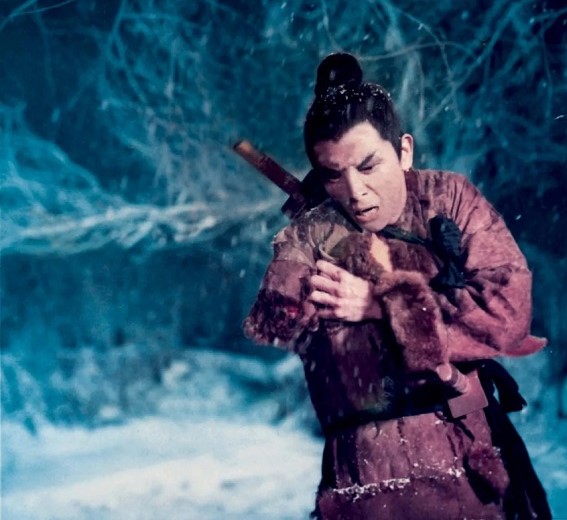
Naturally, this is one of the first of a new style of martial arts picture, featuring more blood than earlier titles from the era. The movie is beautifully shot (Including some incredible photography early on in the snow when the lead first loses his appendage) and is incredibly stylish with a memorable climactic battle. It’s easy to see how this adaptation became a hit and inspired many more titles like it.
The Blu-ray itself is also excellent. The appearance is wonderful and will delight any viewer. There are plenty of insightful extras as well, including a film historian commentary with background information on the director, producers and cast. A nearly 40-minute special is present that also goes into the work of the Shaw Brothers and how this production came into existence. Additionally, a 2001 interview with star Jimmy Wang Yu is included. It’s fun, as he talks about being right-handed and having to train and learn to do everything with his left hand. There is also a video essay on Yu’s work in the movie, as well as discussions with other cast members from about 20 years ago. They are all informative and the disc also includes trailers.
Return of the One-Armed Swordsman (1969) picks up the story with Fang Gang (Jimmy Wang Yu) and his wife (Lisa Chiao Chiao) now working a farm in the county and living a quiet life. That is, until evil forces led by an unknown figure (Tien Feng, playing an entirely different character in this follow-up) makes him compete in a rigged contest in which the participants seek to end Fang Gang’s life. The hero teams with some locals and fights back, although all the baddies have various and incredibly varied and elaborate weapons at their disposal.
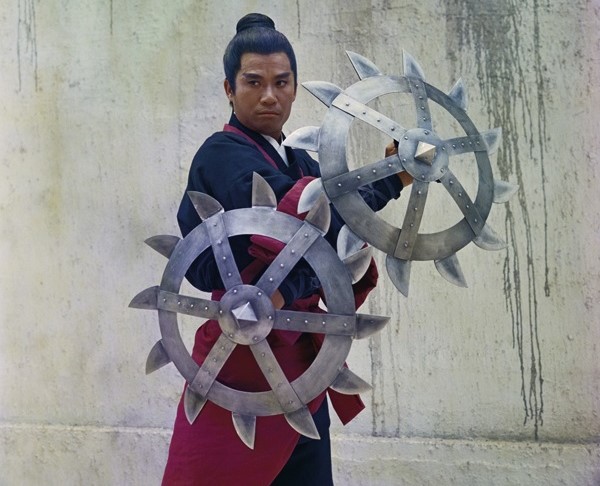
The fights are far more elaborate in this picture and the villain’s wild and crazy techniques make the picture a lot of fun. In fact, some enthusiasts believe this follow-up is better than the original and it’s easy to see why. The set up of all the characters does take longer, but the climactic confrontations are pretty dazzling to witness. Their battles are graphic as many innocent friends of the hero end up being sliced to bits as they help the hero fight back.
The image quality is also great and the action even better this time out. It’s probably as good as a sequel can possibly be. This title comes with trailers and a film historian commentary that goes into tidbits about this sequel. The speaker also notes that having an actor from the original return as a completely different major character in the follow-up wasn’t shocking or unheard of to audiences during this era.
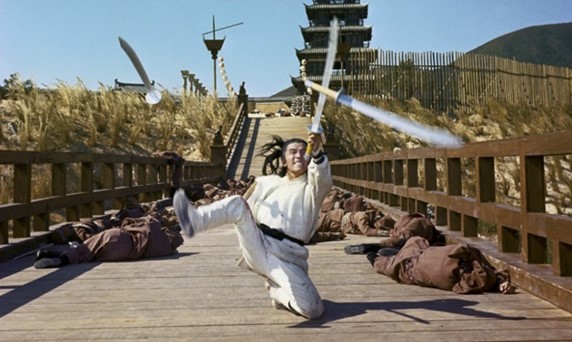
The New One-Armed Swordsman (1971) aka Triple Irons tells a story about a different one-armed fighter Lei Li (David Chiang). We see how he came to lose his appendage after a bet made while squaring off against his master. After learning special adaptive skills, he sets out to help a woman in trouble, severing all other people’s body parts in the process. This follow-up and attempt to start a new line of features didn’t catch on in its homeland, but it does include some entertaining action. The title also arrives with a fun film historian commentary noting the differences between this effort and its predecessors.
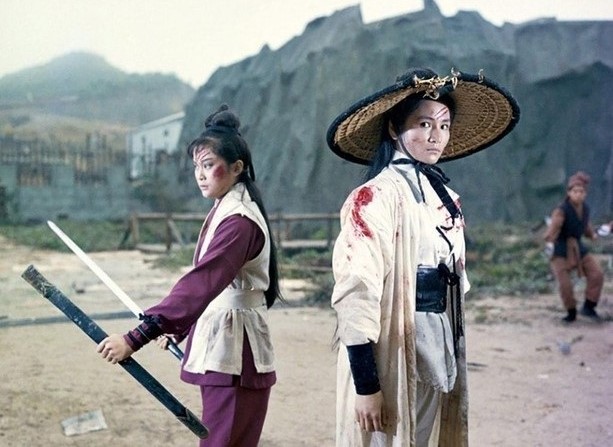
The Lady Hermit (1971) is an unexpectedly enjoyable effort about the title character (Cheng Pei-Pei) a female fighter with incredible martial arts skills, and her protégé Jin Cuiping (Shih Szu). Together they take on the sinister Black Demon (Wang Hsieh) and his evil army. This one takes a bit of time to get going, but features some outrageous fight scenes in its second half, including a battle on a rickety bridge that is very reminiscent of the climax to Indiana Jones and the Temple of Doom. The finale, which features one of the leads climbing to the top of a tall temple as she throws foes stories down to the ground, is extremely entertaining to watch.
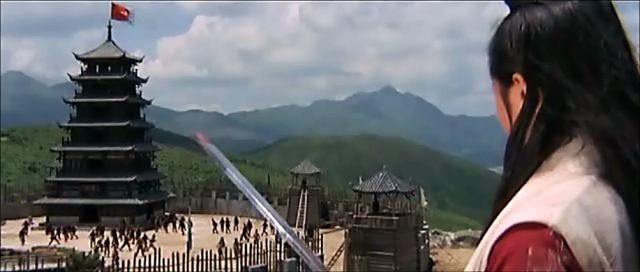
This one is a lot of fun. It also comes with a trailer and film historian commentary, who compliments the photography and how good this picture looks because of this new remaster. The individual also points out an early appearance from Sammo Hung as a henchman.
On a slightly different note, Intimate Confessions of a Chinese Courtesan (1972) offers more dramatic tendencies. Pictured below, the lead is Ainu (Lili Ho Li-Li), a young woman who is mistreated and ends up working as a prostitute. Viewers see her end up in the middle of some intrigue and a mysterious death. There actually is a bit of action at the end, but the film is primarily a melodrama. It is a strikingly shot one though, with plenty of bright pink backdrops and other beautiful images presented, allowing the feature to stand out and make an impression among the others in the set. The subtext also addresses the horrible treatment of women in a manner that was more forward-thinking than other pictures of this era. A commentary track goes into these details and more analysis of the movie.
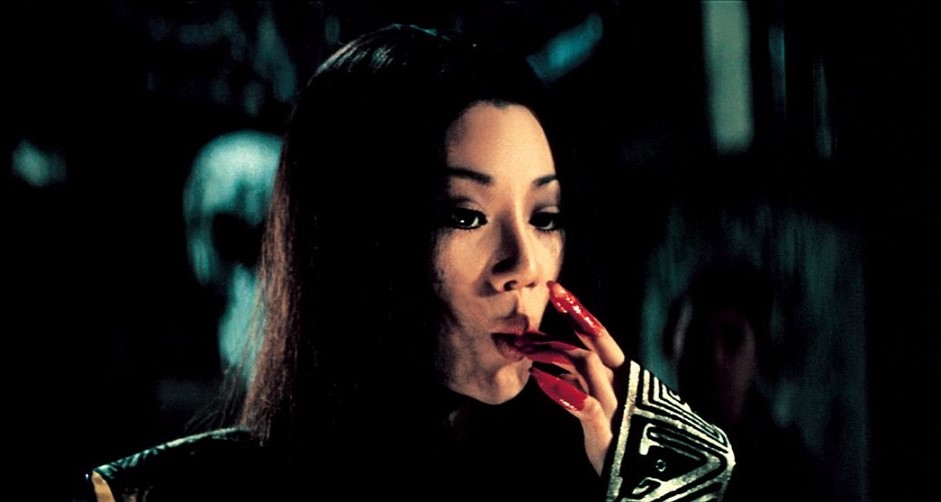
The 14 Amazons (1972) is a historical epic that gets off to an unintentionally amusing start when the title credit appears announcing the film as 12 Amazons. There are actually 14 in the film though, in this case a group of women who join the Yang family in their fight to defend the country (despite government officials doing their best to stop the attack). This one is an all-star epic with larger-scale action scenes, including an impressive finale in which the villains are finished off by the lady warriors. But as the film historian commentary notes, the presentation of the material is dated. It isn’t historically accurate, some of the ideas don’t play nearly as well in the modern era as they did back then. Additionally, the plot and sheer number of characters make it hard to follow for western audiences. At least the commentary does clarify plot points and give insight into what’s occurring. The image quality on this title is also particularly strong.
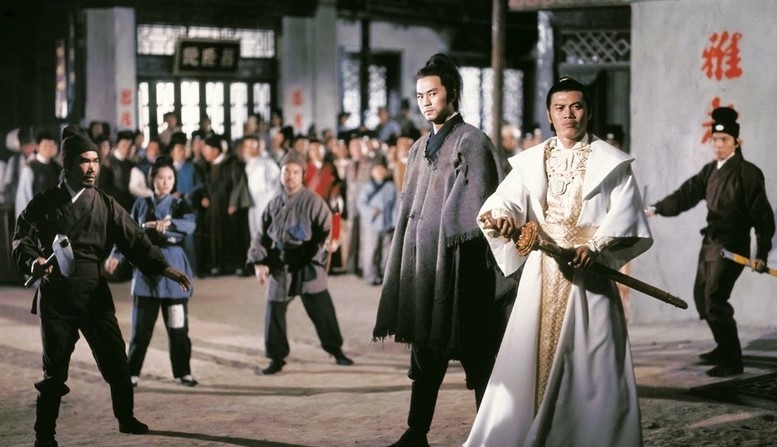
Next up is The Magic Blade (1976), an interesting effort with a great storyline. Two sworn enemies Fu Hongxue (Ti Lung) and Yan Nanfei (Lo Lieh) agree to a duel to settle who is the best sword fighter. But before they can finish, attempts are made on their lives. They agree to team up and find the responsible party before returning to finishing their challenge. The conceit allows for some interesting interactions between the main characters and there is plenty of mood and atmosphere. The fights are well handled and the reveal at the finale is, as intended, enjoyable. This isn’t the greatest title in the set, but does have a good set-up and some excellent moments. A trailer and film historian commentary features an authority arguing that the title is one of the most underrated of the mid-70s.
Clans of Intrigue (1977) is the closest thing you’ll get to a mystery plot in this set. The lead (Ti Lung) is set up for a murder he didn’t commit and must find the guilty party himself before he is taken away. The story is overly complicated as secret motives of several parties are slowly revealed and the experience is a bit dry overall, but there is some nice photography and a couple of memorable moments. This title also comes with a film historian commentary track and trailer.
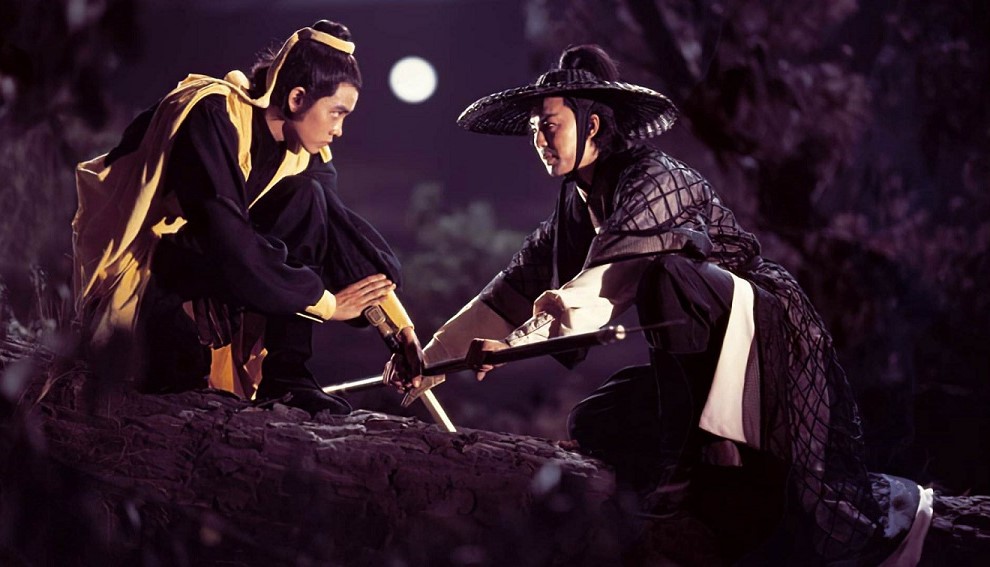
Jade Tiger (1977) follows Zhao Wuji (Ti Lung), a man who is about to be married. When he discovers his dad’s corpse on the night of his nuptials, he seeks revenge on the enemies he believes are responsible. Things get complicated when he goes undercover and befriends an individual whom he promised not to interact with. This title incorporates supernatural elements, including a group of unique fighters hidden among society who prefer peace over violence. When they become involved in the proceedings, it leads to a few extra moments of consideration for the ramifications of revenge and the endless cycle of violence in the martial arts world. This one is overly earnest, but the intent is positive, along with some fantastic added elements that make an impression (the hero receives advice on an antidote for poisoning by a man laid out in a coffin). This feature includes a film historian commentary and a trailer.
One of the most visually impressive movies in this set is The Sentimental Swordsman (1977) about the title character (Ti Lung), a figure with a troubled past. He journeys home after ten years to help locals deal with a “Plum Blossom Bandit,” but the trip also opens up some old wounds. He meets another swordsman along the way named Ah Fei (Derek Yee) and the two get caught up in various plots within the village.
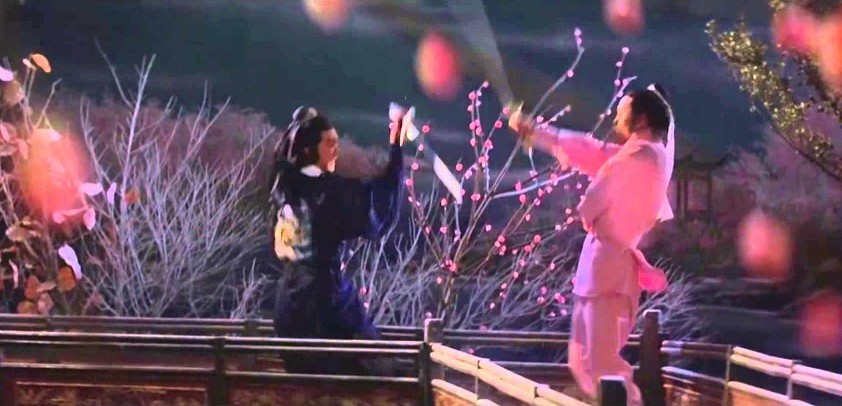
As mentioned, this one really stands out because of its atmosphere and incredible imagery. This is a rare Shaw Brothers picture of the period to use real location shooting, specifically in snow-covered mountains. Admittedly, the action scenes are filmed largely on sets but the exteriors add an epic feel to the proceedings. Even the interior locales are above average, with nighttime scenes on a property featuring the characters surrounded by gorgeous plum blossom petals. The story is different enough to keep one engaged and it’s a stunner to look at. There is a film historian commentary for the features delivering background info, as well as numerous international trailers for the picture.
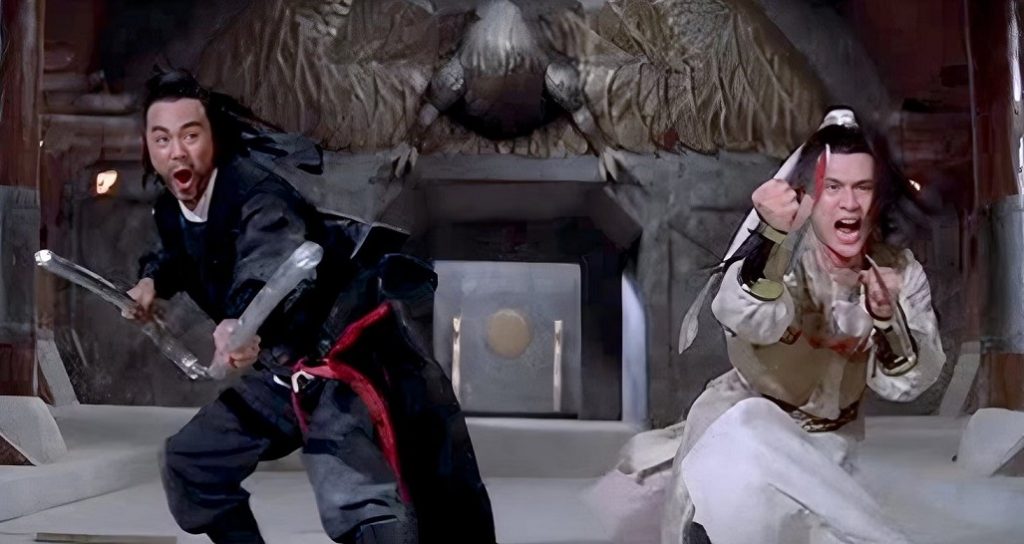
The star of the previous, well, actually the majority of pictures on this set, returns in The Avenging Eagle (1978), this time as Black Eagle (Ti Lung). The main character is orphaned and raised to be a member of a vicious gang, but that begins to change after several encounters with a loner named Zhuo Yifan (Alexander Fu Sheng). While they are initially at odds, flashbacks eventually reveal their complicated history and how they might be tied together. While I had never heard of it, this title is considered another Shaw Brothers classic and it’s for good reason. The onscreen relationship between the two leads is very good, a few comedic moments and the spectacular, brilliantly-paced fight sequences are wonderful to witness. In fact, the whole picture gets more and more exciting as the story progresses.
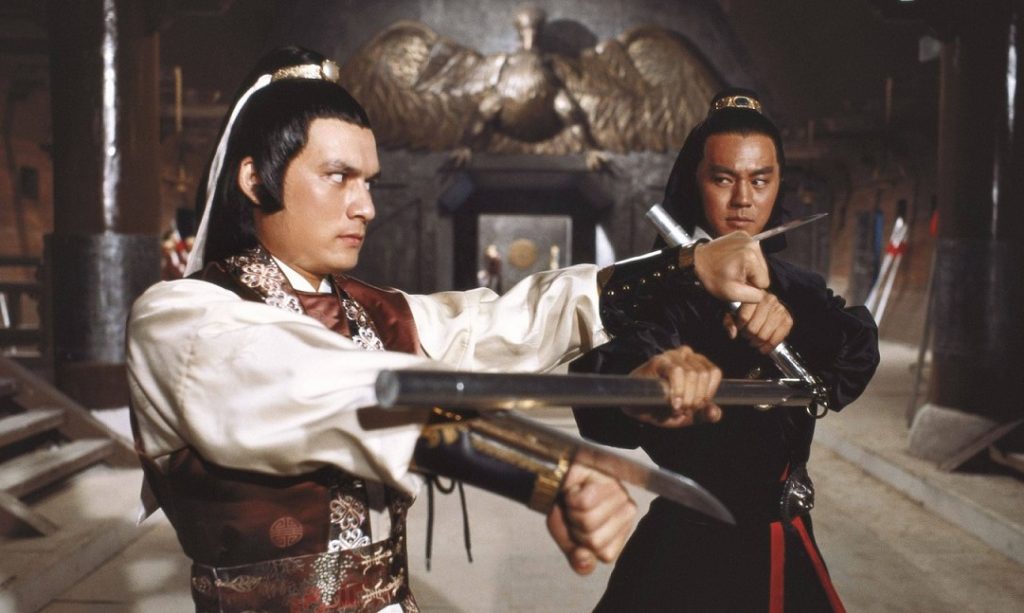
This title includes trailers for the movie, alternate English titles, and an informative movie expert commentary. The cinema authority notes that part of the reason this film works so well is that each fight scene was handled differently, with each bit also getting more and more elaborate as it builds to a climax. He also notes that the super-fast fight scenes were shot at 24 frames-per-second (instead of the typical undercranked 22 fps) making it all the more remarkable. This film is a real blast and may be my personal favorite in this box.
Killer Constable (1980) marks a collaboration between the Shaw Brothers and a South Korean production company. This period title features Leng Tian-Ying (Chen Kuan-tai) as an officer who is essentially “Dirty Harry,” only carrying a large silver sword instead of a 44 Magnum to enforce his extreme brand of justice. This tale is as hard-boiled as it gets and bloody as well, which thankfully makes it difficult to take very seriously. The sword fights are well-shot and the nighttime scenes using firelight and red gels does look impressive. There’s also a nicely shot confrontation in the rain. The movie isn’t perfect, but is entertaining and earns a few smiles.
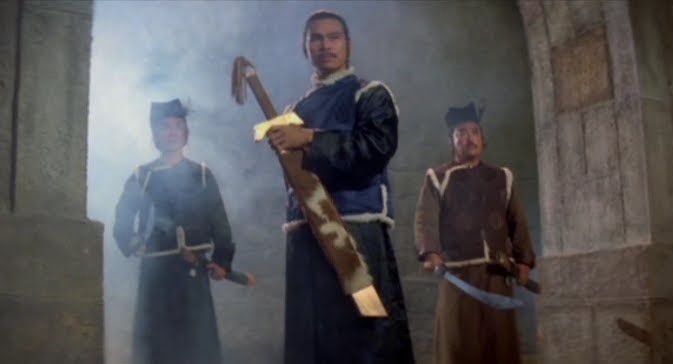
This one features a lot of extras. There is 34-minutes of completely different footage from the South Korean version that changes character motivations and story elements. It is sourced from VHS so it doesn’t look great, but is intriguing to see. The title also arrives with three film historian commentaries that talk about the movie and popular 70s movies that may have partly inspired the feature. You’ll also get alternate English credits and multiple trailers.
If you enjoy supernatural thrills, Buddha’s Palm (1982) features plenty of hijinx as Lung Kin-Fei (Derek Yee Tung-Sing), is sent off of a cliff and is taken in by master Koo Hon-Wan (Alex Man Chi-Leung), who specializes in a unique fighting technique. Specifically, giving a person’s fist incredible power. The hero learns about the skill, but soon enemies and supernatural figures others arrive also wanting this gift. You’ll see undead fighters, monsters and even a dragon. The movie (pictured below) doesn’t really make much sense to Western eyes, but it is enjoyably loopy. This one comes with a film historian commentary, alternate English credits and a trailer.
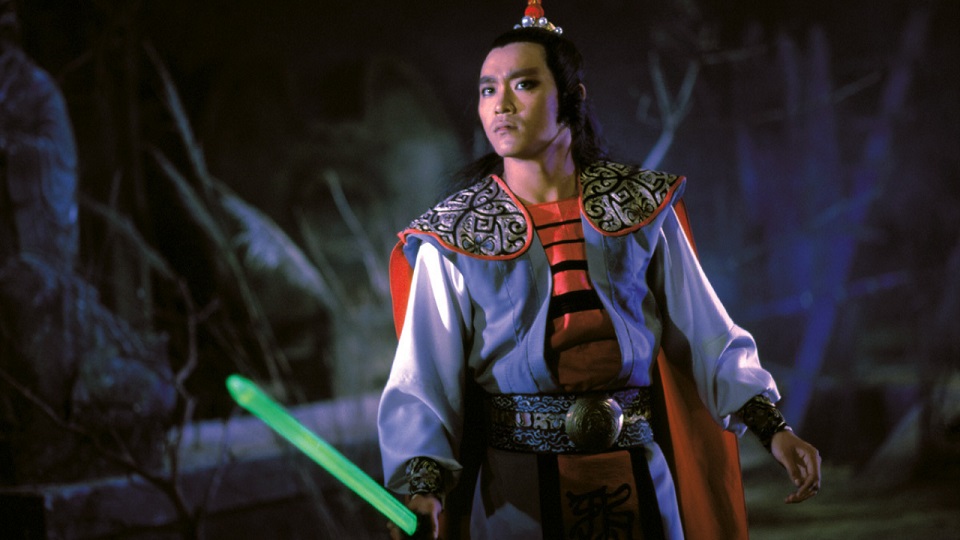
Finally, Bastard Swordsman (1983) is an interesting effort that benefits from a likable lead. Yun Feiyang (Norman Tsui Siu-Keung) is the shunned title character who is made fun of by all in his dojo because of his unknown heritage. So much so, other students literally use him for target practice during training sessions. When the group’s master is murdered, the hero is blamed and so he goes on the run. He is eventually taken in and trained to be able to fight for himself. This film takes a little while to get going, but is an underdog story and it’s hard not to root for the bullied lead. There is a lot of impressive wire work here as the characters hop around and do battle in an exaggerated manner. This effort includes a cinema expert commentary and a trailer.
Still, want more? Well, the set’s bonus disc includes the South Korean version of Killer Constable. It cuts between the widescreen Hong Kong edition and full-frame VHS footage of the different footage for South Korean audiences. The combo is bizarre and the original version is superior, but you do end up seeing different material and a far more upbeat ending.
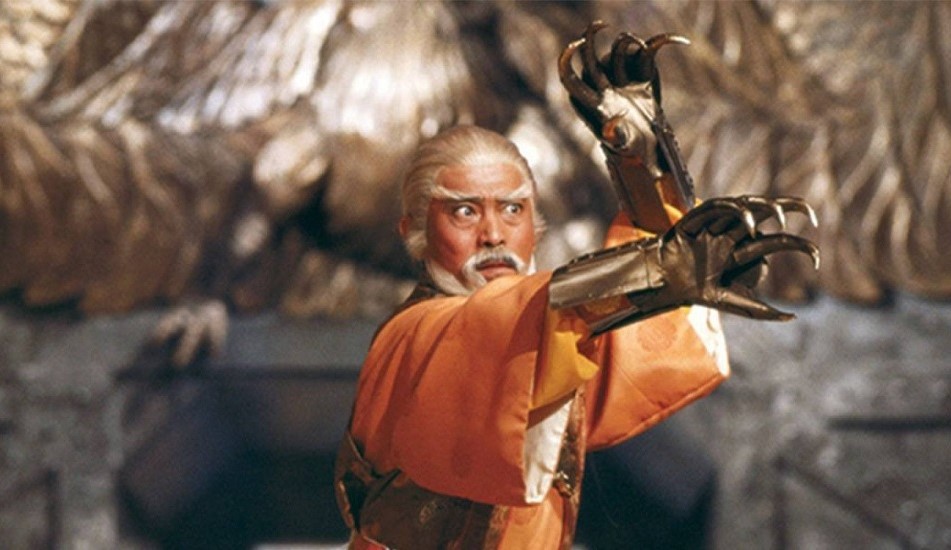
There is extra analysis on the Intimate Confessions… title, as well as additional interviews recorded between 2002 and 2004 with cast and crew of various movies. My personal favorite is a retrospective on the career of Ti Lung. Another fun one is a discussion with Kur Feng, the villain of The Avenging Eagle. He notes that while having the right skill set for action movies, he simply didn’t have the look of a typical Hong Kong hero. Instead, he focused on playing villains in pictures and had a great time losing himself in those dynamic characters.
Another nice addition is a CD that features score cuts from several of the titles presented.
This is a wonderful set that will please anyone with a taste for Honk Kong action cinema. The image quality is clearly upgraded. There are a few exceptional titles and many very good ones to enjoy. Most will find a new favorite action movie in this Blu-ray set. Shaw Brothers Volume Three is another gem from Arrow Video.


